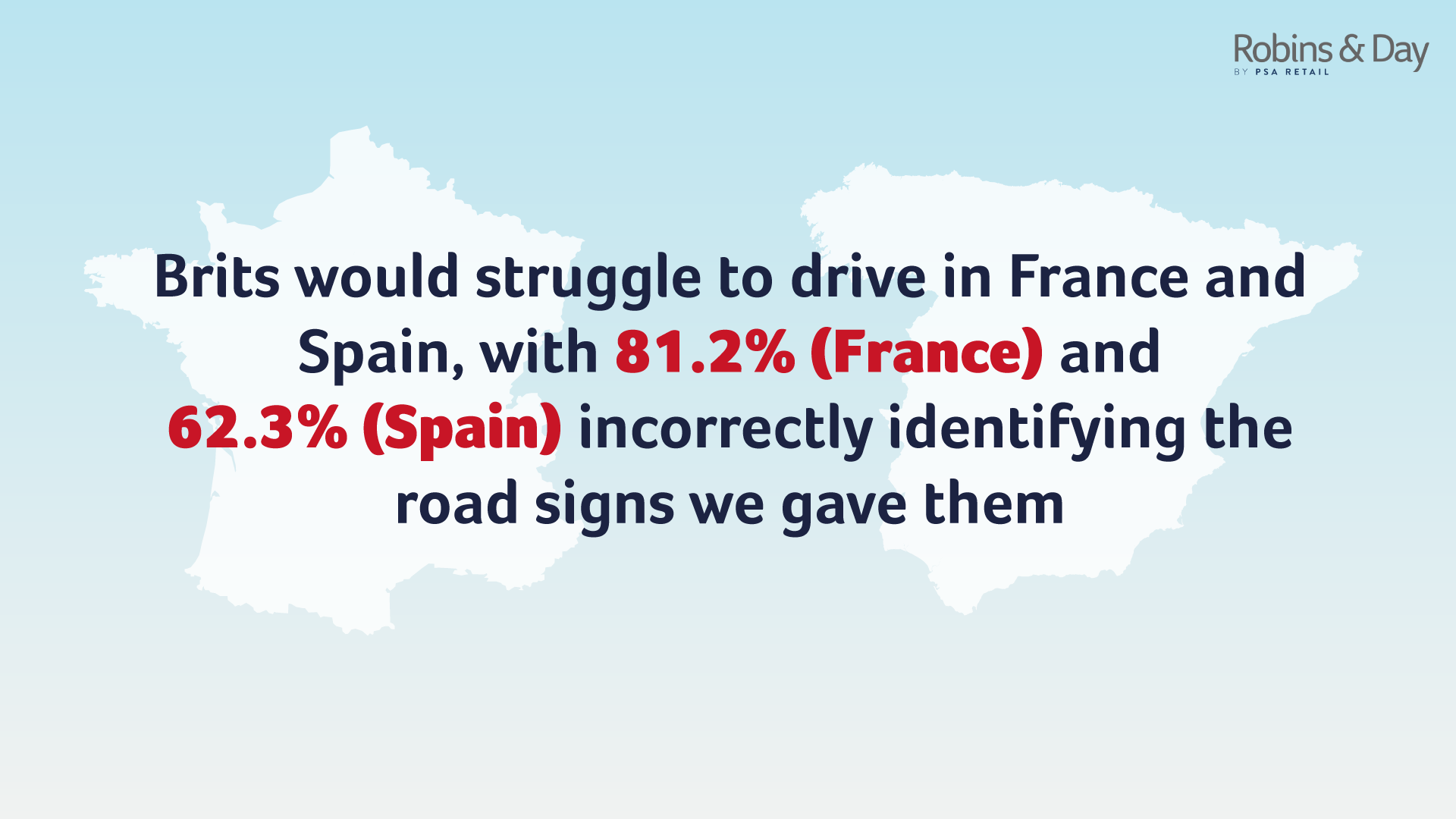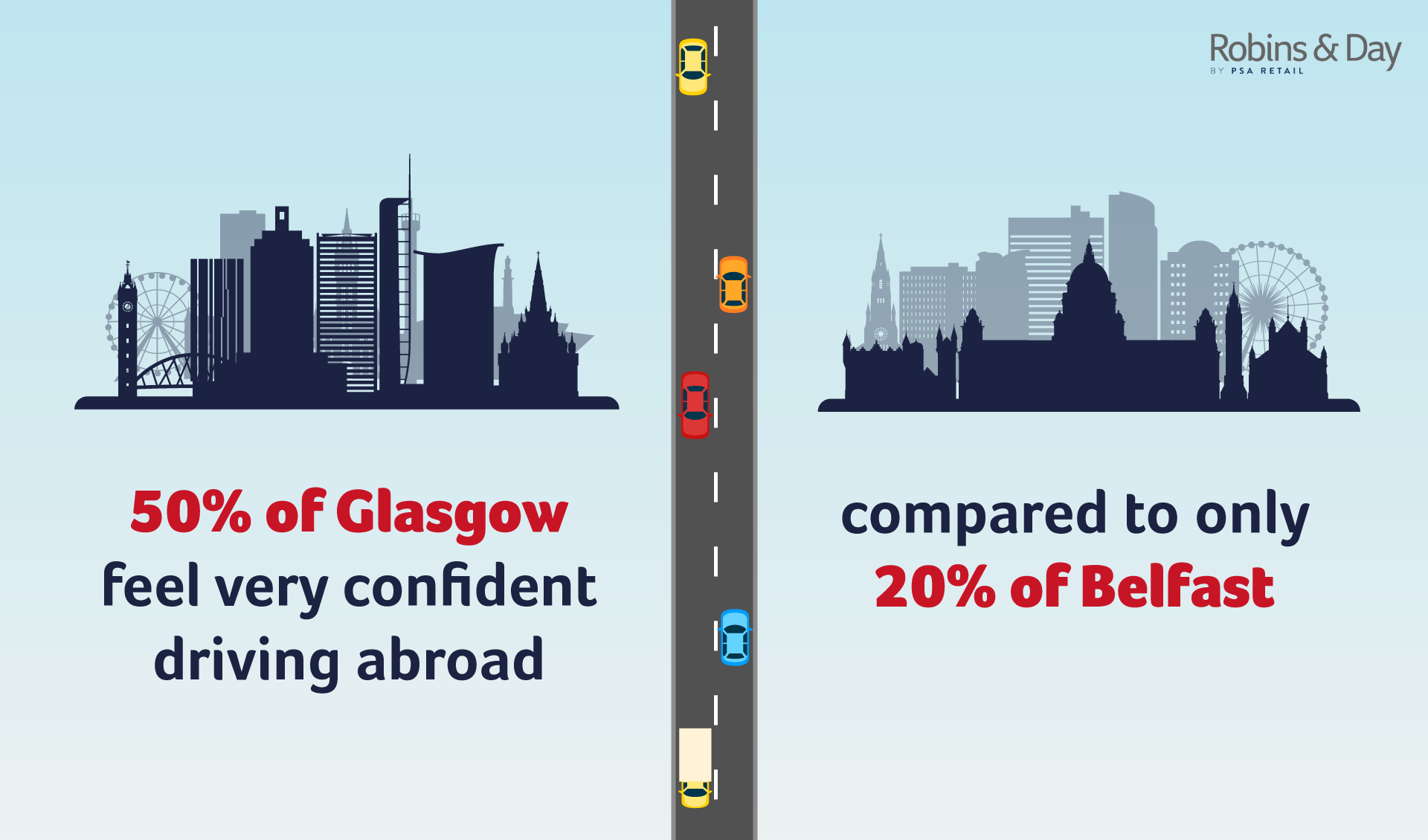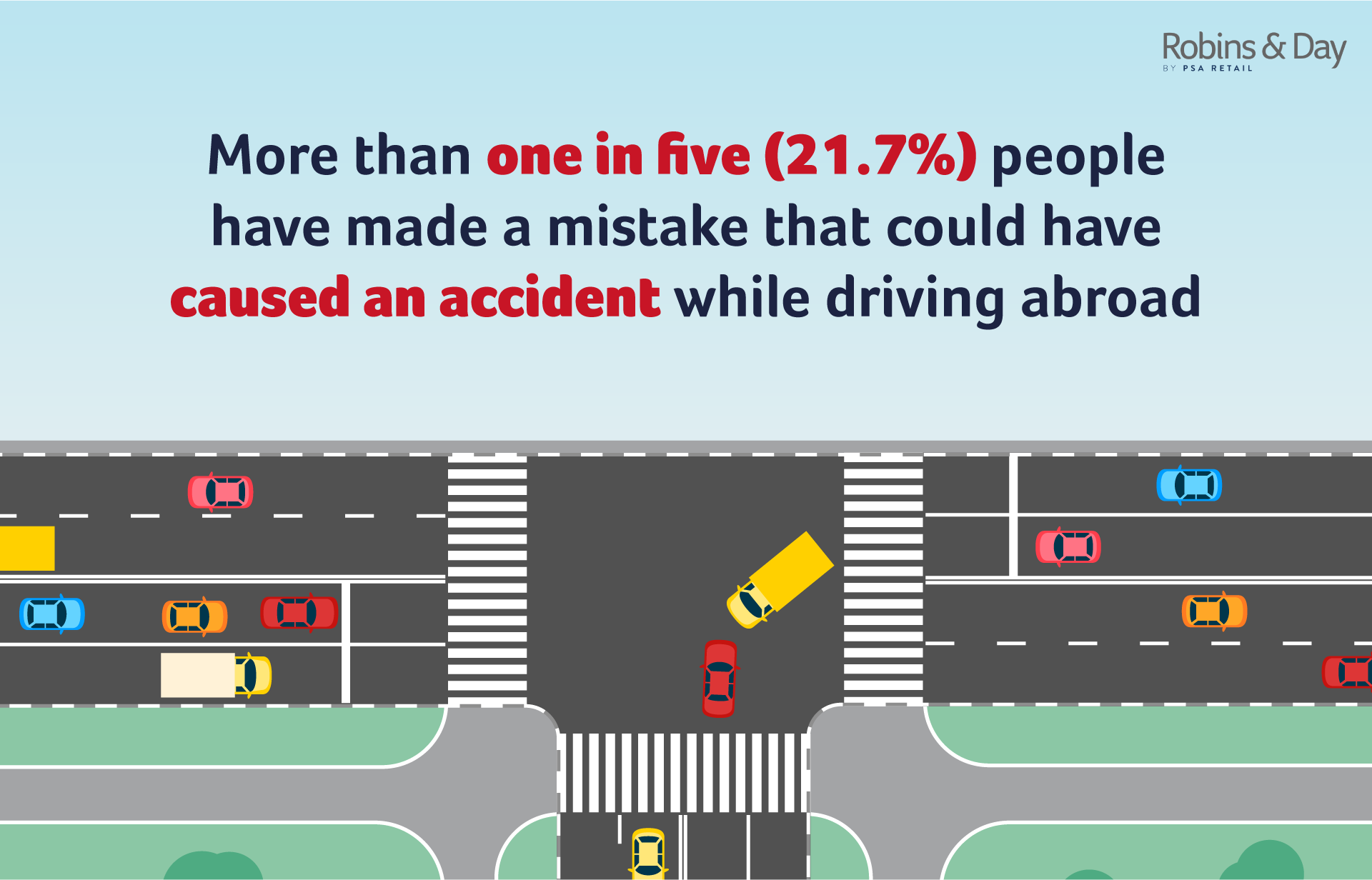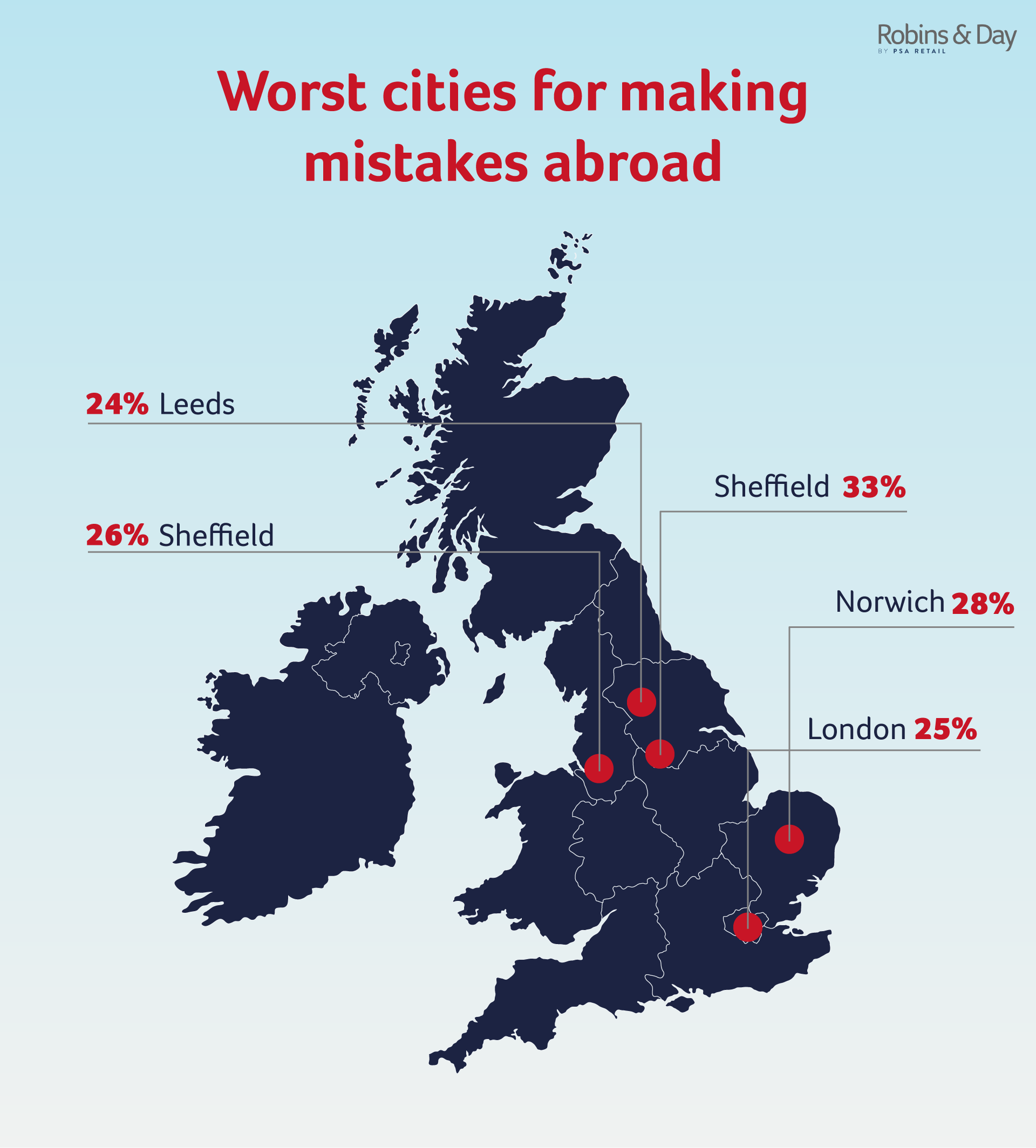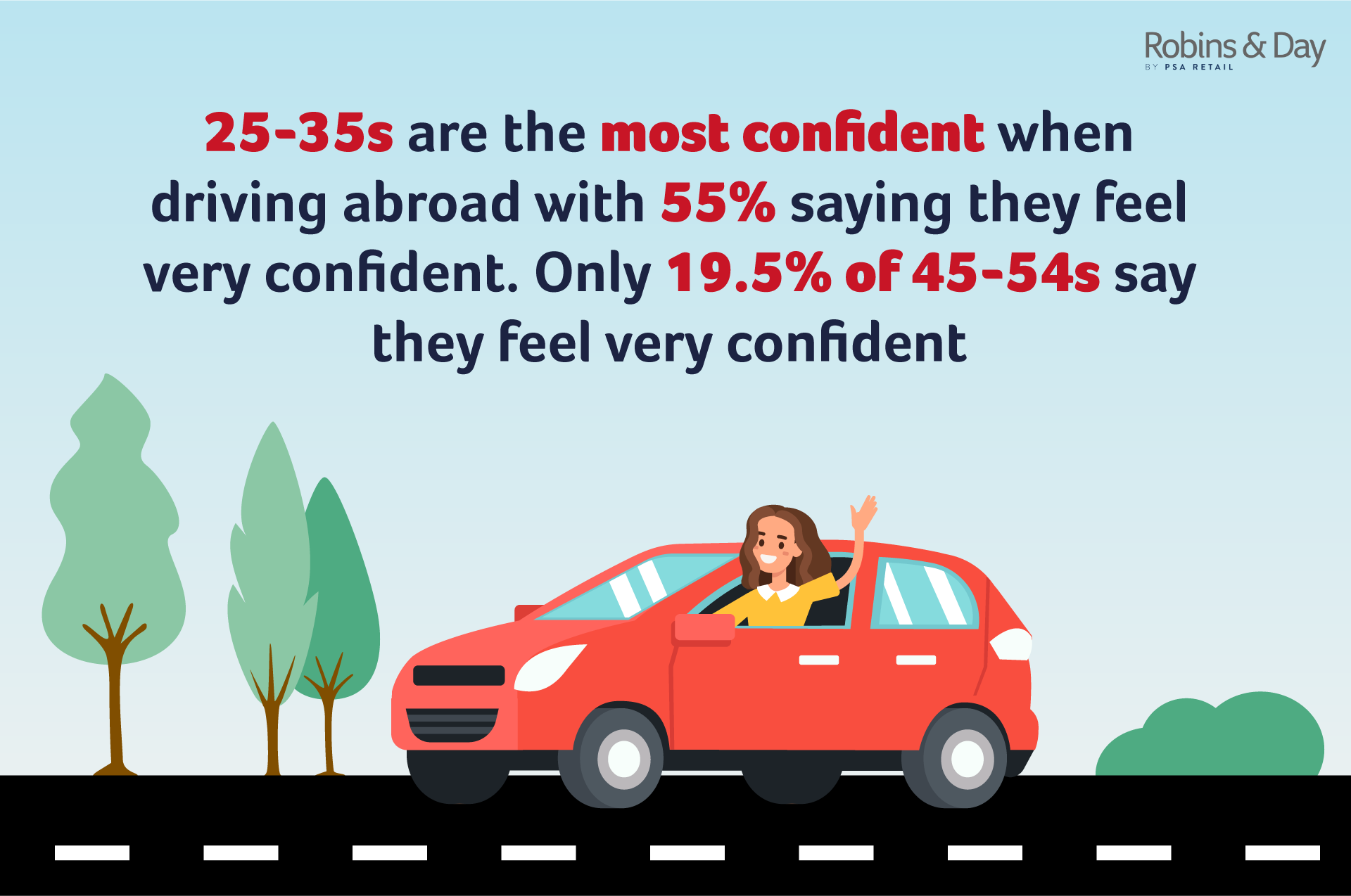The Stresses of Driving Abroad
Have you ever ventured on holiday and shuddered at the thought of having to hire a car and drive on the opposite side of the road? Do you ensure you brush up on your destination’s highway code or rules of the road before you arrive? If not, don’t worry, it seems as though you’re not alone.
At Robins and Day, we decided to delve deeper into how Brits really feel about driving abroad and test their knowledge of road signs from around the world – with some interesting results.
Do you know your foreign road signs?
Shockingly our research revealed that more than one in five (22%) of people said they’d made a mistake while driving abroad that could have caused an accident. Although there were many reasons for this, it seems as though holidaymakers should definitely brush up on their road sign knowledge before they hop in a car, as this was a major factor in the results.
Despite being two of the most popular destinations to head to for their annual holiday, it seems as though Brits would really struggle to navigate the road signs in France and Spain, with the majority of people incorrectly identifying the roads signs we gave them (81% for France & 62% for Spain).
While there was still some confusion with the road signs in Germany and Italy, it seems as though us Brits are more knowledgeable in these regions, as nearly 50% of those quizzed could correctly identify the ones we showed them.
Our research showed that language similarity is not the only thing we find easy when it comes to visiting America and Australia - their road signs are the simplest to navigate for Brits abroad too. Over 80% of those surveyed correctly labelled the USA signs and a whopping 94% correctly guessed the Aussie road instructions.
Does gender matter?
When driving abroad is concerned, apparently it does. From the Brit’s we spoke to, it transpired that men are much more confident when driving abroad than women are (43% vs. 20%), and that 26% of women don’t feel comfortable with driving abroad at all.
However, interestingly only 18% of women have made a mistake that could have caused an accident vs. 24% of men.
Does age come into the mix?
It’s true what they say, the older you get the less confident you feel on the road; it seems as though the same philosophy applies abroad too.
Those in the 25-35 age bracket feel the most confident when navigating the roads on holiday, with a whopping 55% saying they feel very confident to drive – while only 19% of 45-54s say they feel comfortable behind the wheel in a foreign country.
Shockingly, one in three 55-64s have made a mistake that has caused an accident on holiday, yet despite this, 84% of 65+s claim to have never made an error abroad. Do you think there should be a potential age limit on driving abroad?
Does your hometown affect your foreign road driving skills?
Would you assume that if you live and drive in a larger city that you’d be better at driving in a foreign country? Our results showed a mixed bag indeed.
Around 50% of Glaswegians feel very confident driving abroad compared to only 20% of those living in Belfast. In contrast more than one in three (34%) of those living in Newcastle would not be comfortable driving abroad at all compared to only 7% of Mancunians.
Time to brush up before we jet away
With a shocking one-in-five people having driven on the wrong side of the road almost causing an accident, and 15% driven the wrong way around a roundabout, it seems that accidents are more prone to happen abroad as we struggle to get to grips with the left and right hand lanes.
If you’re part of the percentage of people who would not feel comfortable getting behind the wheel in a foreign country but still need to drive while away, be sure to do some research before you go to ease your mind and stay safe.
Study the local road signs, road types and areas you’ll be driving around using maps and online research. This could help to avoid any unnecessary penalties from local authorities or governments, as well as ensuring you feel confident and comfortable enough to ward off any unfortunate accidents!
Some helpful technology
Selected Peugeot, Citroen and DS models have speed limit sign recognition and other technology that can assist when driving. As well as a camera that can detect speed limit and derestriction signs, the system can also recommend speed adaptions based on weather and driving conditions. Extended Traffic Sign Recognition can recognise stop signs, no entry, no overtaking and end of overtaking.
These driver aids are designed not to replace the driver, but to make your journey safer.


 Find us
Find us
 Contact Us
Contact Us


 My account
My account

